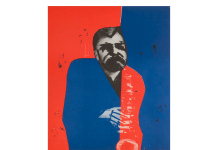A nationally recognized election expert says local ballot measures can at times suffer or take a back seat during a presidential campaign.
Fernando Guerra, a professor of political science at Loyola Marymount University in Westchester, believes higher profile initiatives often take precedent over lesser known local measures during election years when the presidential race is the hot topic.
While voter turnout is typically higher during presidential campaigns, this year’s ballot will feature several tax propositions.
“Sometimes by the time (voters) get to county and statewide initiatives, especially of they are tax measures, some voters might not want to vote for another tax,” Guerra said in a recent interview. “And that does not bode well for them.”
Culver City has a sales tax measure on the ballot next month that would raise the current levy by a half-cent. The initiative, known as Measure Ywhich to date has enjoyed widespread support, is cited as a necessary and last resort option to save or supplement municipal services, which city leaders say could be on the chopping block if Measure Y is not successful.
“We’re no longer realistically in a position to be all things to all people all the time,” Mayor Andrew Weissman said in a previous interview.
Weissman and other city leaders have been engaging the public through citywide walks, fundraisers and other events to drum up support for the measure.
There is also empirical evidence that suggests that Measure Y has a better than average chance at passage.
A survey conducted in the spring by a consulting group, Fairbanks, Malsin, Maulin, Metz & Associates, indicated that a plurality of Culver City residents realize that further budget cuts could have a deleterious effect on the city and recognize that additional funds are needed.
But Guerra said there are statewide, well publicized propositions where their organizers have run campaigns that have drawn the attention of voters that also ask the electorate for a financial sacrifice on Nov. 6.
Propositions 30 and 38 have waged month long campaigns in an effort to convince voters statewide to raise taxes on themselves in order to help the state’s school districts. Both target income taxes and seek to raise them on California’s highest earners.
Culver City is not alone in its pursuit of more revenue after a prolonged economic slump. Cities such as Santa Monica and Inglewood have also sought half-cent sales tax hikes to offset budget problems.
Unlike Measure EE, a 2009 Culver City parcel tax that was approved by the city’s voters, Measure Y does not require a two-thirds vote for passage. Parcel taxes, special taxes and general bonds require 67% of the vote.
Since 2001, according to the website www.californiacityfinance.com, there have been there have been 1, 5000 local revenue measures placed before voters and approximately 25% were local general purpose tax initiatives.
“(Majority ballot measures) have been more likely to pass,” said Michael Coleman, the principal fiscal policy advisor to the League of California Cities.
Culver City Councilman Jim Clarke said convincing voters to give their approval to Measure Y requires a campaign similar to his during this spring’s election race for city council.
“We will have an active campaign, going door-to-door, much like I did in my own campaign,” Clarke said.
Guerra noted one way local leaders can inspire voters to keep the municipal measures in focus is by pitching them in a way that ties the continuation of city’s programs or services to the proposition.
“(Residents) can relate to that,” he acknowledged.
Measure Y, if it passes, is expected to bring approximately $8 million in tax revenue.













